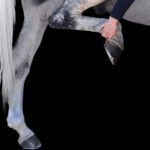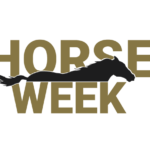Dec. 6, 2004 — Ludger Beerbaum, who had the best score on the gold medal German Olympic show jumping team, has been disqualified because his horse tested positive for a forbidden substance.
That means the U.S. silver medal show jumping team could be elevated to gold if Beerbaum decides not to appeal the ruling by the FEI (international equestrian federation).
It’s hard to believe that the Olympic placings are still being decided more than three months after the Athens Games ended, but in the FEI’s version of things, it takes a long time for justice to be served.
Without Beerbaum’s score, the Germans drop to bronze on 21 penalties, to 20 each for the U.S. and the Swedes. The Swedes, who got the bronze in a jump-off at the Games, would move up to silver if the Germans are displaced.
McLain Ward, a member of the U.S. squad in Greece, said there’s definitely a down side to getting a gold medal after the fact. “You miss the moment,” he pointed out.
But when he was on the podium accepting the silver, “all I could focus on in my own head was the mistakes I made,” Ward said.
Now, he has perspective.
“We’ve (the team) received such a wonderful reception that it feels like we really did something great. It’s a long time since the U.S. did that, and it’s a wonderful feeling,” he said.
The FEI contended that the Betamethasone ointment applied to a scrape on the left front leg of Beerbaum’s mount, Goldfever, didn’t affect his performance and that Beerbaum only wanted the medication used for therapeutic reasons. But the fact that he did not go through proper procedures to get approval for the medication means he violated a rule and so his score cannot count.
The FEI only fined Beerbaum, however, and did not suspend him.
“If it was anyone else, he would have been suspended,” contended Ward. He echoed a comment made during the Games by U.S. Equestrian Federation high performance show jumping chairman George Morris that the Germans have too much influence on the way international equestrian sport is run.
To those who say Beerbaum’s punishment is too great, Ward suggested that without the medication, “I don’t know if Goldfever would have jumped clean. And maybe (U.S. team member) Peter Wylde’s 14-year-old mare (Fein Cera) would have been in form” if she could have had similar aid.
That being said, he noted, “I don’t think the FEI drug policies are correct.” He, like many others, feels there should be tolerance for trace elements of substances that can be picked up in minute quantities by today’s highly sophisticated testing equipment, but do not affect performance.
The Beerbaum case provided impetus for the FEI to appoint a task force to examine its medication policies. Four horses at the Olympics were found to be in violation of medication regulations in an embarrassing situation that continues to have repercussions.
There has been no hearing yet on the case of show jumping individual gold medalist Cian O’Connor of Ireland, whose Waterford Crystal also had a positive drug test.
German eventer Bettina Hoy was not penalized after her Ringwood Cockatoo tested positive for an artificial corticosteroid. Her vet had gotten verbal permission to use the medication from an Olympic vet, the FEI explained.
Hoy already had been through the wringer a few days after the Games, when her team and individual gold medals were taken from her because she had gone over the start line twice in the show jumping phase.






